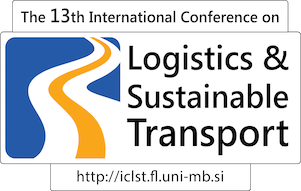Invited lectures
Professor Chris Nash, PhD, University of Leeds, United Kingdom
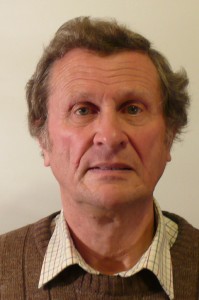
Chris Nash is Research Professor in the Institute for Transport Studies, University of Leeds (ITS), where he leads research in the fields of rail policy and transport infrastructure charges, in which fields he has led many projects for both the British government and the European Commission. He has acted as expert advisor to many groups, including the High Level Group on Transport Infrastructure Charges of the EC, the Railways group of ECMT, and the Transport and European Union Select Committees of the British Parliament. His recent work includes coordinating the DGTREN funded GRACE project on measuring the marginal social cost of use of transport infrastructure, and – as part of the IMPRINT-NET project – leading Europe-wide expert groups on road and rail infrastructure charges and the use of funds from road pricing. He has worked on rail investment policy and the social costs of transport for the Chinese Ministry of Railways and the World Bank, and advised Network Rail on their study of High Speed Rail. Most recently he has worked on the issue of competition in the rail passenger market for both the British Rail Regulator and for SNCF.
Professor Kenneth J. Button, PhD, George Mason University, United States of America
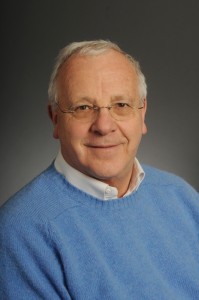
Kenneth Button BA (East Anglia), MA (Leeds), PhD (Loughborough), Academician of the Academy of Social Sciences, Fellow of the Institution of Highways and Transportation, Fellow of the Chartered Institute of Logistics and Transport. He is recipient of the Transportation Research Forum Distinguished Researcher Award and the Distinguished Scholarship Award, Transportation and Public Utilities Group, American Economics Association. He is currently President of the Transportation Research Society.
His past experience includes: Conseiller in the Advisory Unit to the Secretary General of the OECD in Paris; Special Advisor to the UK House of Common Transport Committee; Consultant to the OECD Environmental Directorate; Professor of Applied Economics and Transport at Loughborough University, UK; VSB Visiting Professor of Transport and the Environment at the Tinbergen Institute, Amsterdam; and visiting posts at the Universities of British Columbia, Bologna, California at Berkley, and Inha.
He has testified before the US Congressional Transportation Committee and to the UK House of Lords and UK House of Commons Transport Committees. Professor Button has published, or has in press, some 120 books, over 400 papers in academic journals, and forecasting software. He is editor of the journals Transportation Research D: Transport and the Environment and Journal of Air Transport Management and is on the editorial boards of ten other journals (including the editorial board of Journal of Transportation Security). His recent books have included Urban Planning (edited) Edward Elgar, Cheltenham, 2008; Transport Economics (3rd Edition), Edward Elgar, Cheltenham, 2010; Dictionary of Transport Analysis (edited) Edward Elgar, Cheltenham, 2011; and Transportation and Economic Development Challenges (edited) Edward Elgar, Cheltenham. 2011. Specifically in terms of the supply chain management and logistics, his books include Handbook of Logistics and Supply-chain Management (edited) Pergamon, Oxford, and Transport Logistics (edited) Edward Elgar, Cheltenham.
Associated Professor Anthony T H Chin, PhD, National University of Singapore, Singapore
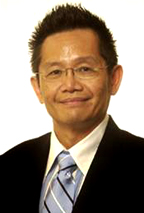
Anthony T H Chin is Associate Professor of Transport Economics, Department of Economics at the National University of Singapore and a Deputy Head of the Department of Economics National University of Singapore, Director of the Economics Executive Programme National University of Singapore from June 1 2005 to date, Deputy Director of the Singapore Centre for Applied and Policy Economics from June 1 2005 to date, Principal Researcher of the Centre for Transportation Research at the Faculty of Engineering, NUS, from 1993 to date, Council Member of the Public Transport Council Ministry of Transport, Singapore from September 2005 to date and Fellow AIRNETH, The Netherlands, 2005 to date. His research areas are mobility, land use and location economics; Consumer choice and pricing analysis: housing, new used cars, cell phones, industrial and commercial property; Financing and privatization of infrastructure; Demand management and strategic planning of transportation and hub analysis, travel behavior modeling; Economics of crime, behavioral methods and fMRI.
Professor Konrad Schliephake, PhD, University of Würzburg, Germany
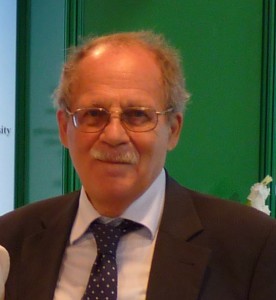
Dr. Konrad Schliephake, born in 1944 in Würzburg, Germany, spent his youth in Germany and Egypt. He took a diploma in geography from Giessen University in 1969 (additional subjects: economic sciences, oriental languages and geology) and received his doctorate in natural sciences in 1972 from the same university with a thesis on transportation geography. Starting his career at the Syrian Ministry of Transport and a planning institution in Giessen, he became, in 1971, research official in charge of the Arab Maghreb at the Institute for African Research, Hamburg (now GIGA). At the end of 1975 he joined the Institute of Geography, Würzburg University, where he was Academic Director up to October, 2009. This was interrupted by a one-year stay in 1980/1981 at the Ministry of Economy and Planning, Riyadh (Kingdom of Saudi Arabia) where Dr. Schliephake monitored the Saudi Arabian national transportation plan. Within his main field of regional planning and transportation research Dr. Schliephake has specialised in demand evaluation for individual and public transport investments. He acts as consultant to various transportation institutions (road and rail transportation companies) and regional entities (Central places and settlement planning, offer and demand in infrastructure, supply and transport). His international activities include field studies and research in Algeria, Tunisia, Libya, Iraq, Saudi Arabia, Yemen and several Arab Gulf states focussing on elements of natural resources, regional development and planning. Various monographs, lectures and more than 500 publications in German, English, French and Arabic reflect these research activities.
Today, he continues teaching as invited lecturer at the Würzburg State University and acts as consultants to public and private institutions.
Professor Nikolay V. Tsuglenok, PhD, Krasnoyarsk State Agrarian University, Russia
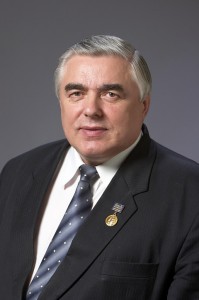
Personal information: 17th of December, the Krasnoyarsk Territory.
Education: 2012 – Corresponding Member of the Russian Academy of Agricultural Sciences; 2000 – defense of doctoral thesis “Electro-thermal complexes formation and development of seeds preparation for sowing”; 1976 – post graduate school at the Krasnoyarsk Agrarian Institute, defense of thesis “Electrification and automation of agricultural production”; 1969 – Krasnoyarsk Agricultural Institute, Engineering Faculty.
Experience: May 1995, and till now – Rector of the Krasnoyarsk State Agrarian University (KSAU) and is employed as professor at the Chair “Systems Energetics”; 1979 – Head of the Chair “Systems Energetics” and he founded Electrotechnical Faculty; 1977 – he was appointed the Head of the Chair “Electrical engineering and agricultural production automation”.
Activities: Nikolay V. Tsuglenok founded in KSAU three research institutes: Institute of Innovative Technological Development, Institute of Analytical Monitoring and Simulation and Institute of Scientific Research and System Analysis.
Publications: Author of more than 500 published works, owner of 105 authorship certificates and inventor’s patents, published 26 monographs and 54 textbooks.
Professor Veselin Drašković, PhD, University of Montenegro, Montenegro

Veselin Drašković is head of the basic academic and specialized study programs in Marine Management at the Faculty of Maritime Studies, University of Montenegro. He was head of the Department of Economics and Management from 01. 10. 2002 at the same Faculty, and the director of the graduate studies from 21. 01. 2001 to 08. 10. 2007. He has in two terms a member of the Council of Social Science at the University of Montenegro.
Due to his social competences it is to be noted that he has been: the Chairman of the Government of Montenegro to control the dynamics of investing and evaluation of hotel and tourism industry from 07. 04. 2004; Ministry of Tourism expert to review business plans and investment programs in tourism from 10. 05. 2004; the expert of the Ministry of Education Government of Montenegro for the accreditation of academic programs from May 2011; the organizer of four international scientific conference “The Montenegrin media dialogues”; the founder and director of the NGO “ELITE – Economic Research Laboratory of transition” in Podgorica; invited speaker to the XV Economic Forum in Krnica (Poland) from 07. – 10. September 2005; the chief Editor of the international journal Montenegrin Journal of Economics and the Proceedings of the Faculty of Maritime Studies of Kotor 25. 11. 2002; also, he has been working in management positions in industry and at University; he has been member of editorial boards of international scientific journal Philosophy of hozjajstva – Moscow, Economics / Econiomics – Zagreb, Economics – Niš, Montenegrin Journal of Economics – Podgorica, and Media Dialogues – Podgorica, etc.
